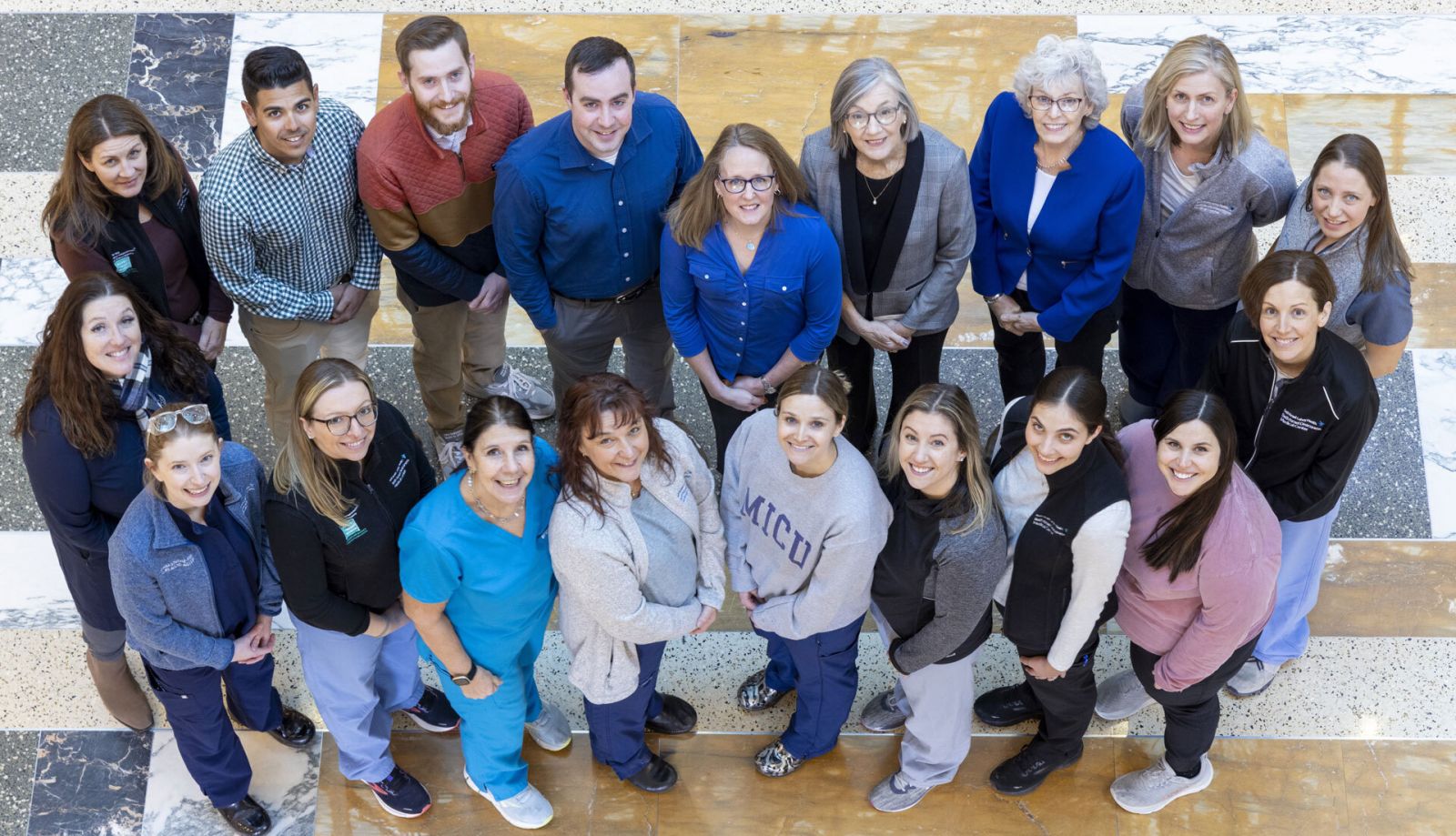Rapid response leads to national device recall and recognition for ICU nurses at BIDMC

The Beth Israel Deaconess Medical Center ICU team received the DAISY Team Award at the Institute for Healthcare Improvement’s Patient Safety Congress in March.
Critical care nurses at Beth Israel Deaconess Medical Center were recently recognized for their dedicated efforts to report, monitor and catalyze changes to crucial infusion pumps used nationwide that posed a safety risk.
The team received a DAISY Team Award, which was presented at the Institute for Healthcare Improvement’s Patient Safety Congress last month. And the U.S. Federal Drug Administration awarded BIDMC a Certificate for Outstanding Contribution in Promoting Patient Safety with Medical Devices for the safety report that led the FDA to issue a Class I recall of the infusion pumps.
“Being fixated on patient safety and continuing to call out safety issues is just part of this culture,” says Suzanne Joyner, D.N.P., R.N., Associate Chief Nurse for Critical Care and West Campus Inpatient Service at BIDMC. “A big part of this story is that something that seemed pretty small was called out by multiple people and created this national recall.”
A safety upgrade causes new problems
The story began in the spring of 2023. About 450 infusion pumps at the hospital had been upgraded with new software. But the ICU nurses soon noticed that something wasn’t right.
The manufacturer's software update, from Baxter Healthcare Corporation, was designed to increase the sensitivity of occlusion alarms and immediately stop the infusion. While intended to improve safety, the software update resulted in frequent interruptions for nurses and potential harm to critical care patients in need of continuous drug infusion.
“I remember coming in one morning and hearing the nurse specialists say, ‘This isn't good, this isn't working. We’re worried,’” says Joanna Anderson, B.S.N., R.N., Clinical Advisor for Education, Neuroscience ICU and Surgical ICU at BIDMC.
The nursing team ultimately collaborated with BIDMC’s clinical engineers and Baxter on the problem. Once Baxter determined that the software update was faulty, the FDA announced the recall, and on June 15, 2023, Baxter issued a national recall of 22,769 pumps. In addition to alerting colleagues and supervisors, nurses reported the problem through BIDMC’s patient safety tracking and reporting system.
If you are dismissive, you may not only be missing serious safety concerns, but you'll also develop a culture where people won't speak up.
"This is how we operate,” Anderson says. “We frequently call out safety concerns, mitigate the risk and work through it. This was one of those situations.”
Anderson also recalls that nurses had to keep using the pumps while a solution was in development. “They were on edge for a while, until the issue got resolved,” she notes.
"Nurses acted very professionally,” Joyner adds, “following through until there was a true resolution. I couldn't be more proud of them.”
Pat Folcarelli, Ph.D., R.N., BIDMC’s Senior Vice President for Patient Care Services and Chief Nursing Officer, says, “This demonstrates the staff’s diligence in ensuring safe delivery of care and in raising concerns as well as how our institution responds and advocates for change.”
Anderson and Joyner credit many others at BIDMC for identifying and pursuing solutions. For example, nurse specialists across nine intensive care units recognized that problems with the pumps were not isolated to one unit. “The collaboration among those members is unique in a critical care setting in an academic medical center, where often the areas are siloed,” says Joyner.
Members of the engineering team, safety and quality staff, and technology management personnel also had a hand in communicating about and resolving issues with the pumps.
“This was a good reminder to always listen to your staff,” Anderson says. “If you are dismissive, you may not only be missing serious safety concerns, but you'll also develop a culture where people won't speak up the next time, and then there'll be silence. I think that’s the scariest situation.”